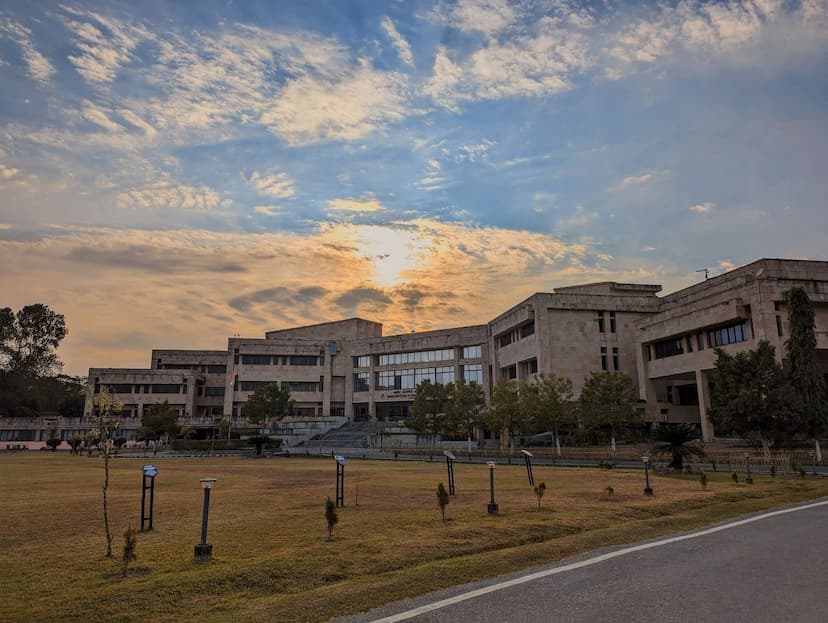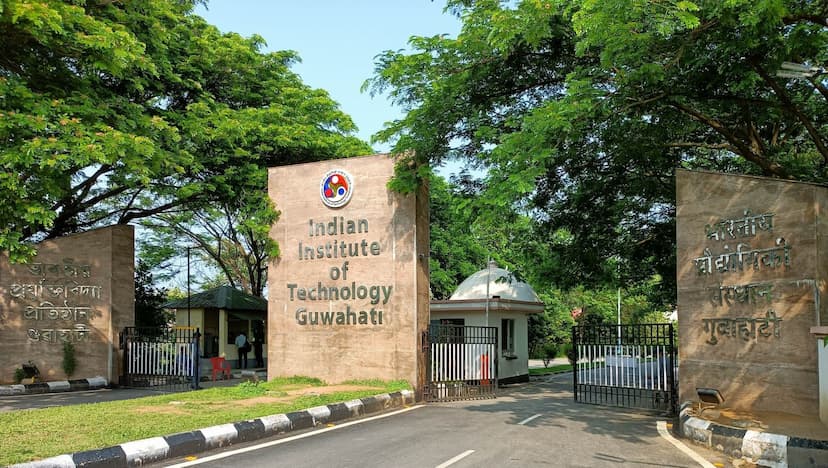IIT Guwahati researchers discover RNA-Destroying Function

IIT Guwahati researchers have investigated the biochemistry of the African Swine Fever Virus (ASFV) protein, focusing on understanding the biochemical processes of infection to devise effective control strategies.
Prof. Sachin Kumar and his research scholars including Mr. Satyendu Nandy, Mr. Nilave Ranjan Bora, and, Mr. Shubham Gaurav, have studied the proteins found in the outer membrane (capsule) of ASFV, with a particular focus on the p30 protein.


Membrane proteins also help viruses evade detection by the host cell’s immune system. Understanding the biochemistry behind these processes enhances our knowledge of how viruses infect cells and can guide the development of treatments and vaccines that target these points of entry, say sources from IIT Guwahati.
The results of this research have been published in the prestigious journal ‘Virology.’
Research
Prof. Sachin Kumar, Department of Biosciences and Bioengineering, IIT Guwahati spoke about the research. He said their ongoing research into ASFV aims to uncover the functional roles of proteins like p30, which are integral to the virus’s ability to infect and evade the host’s immune response.

Technology Transfer
It is notable that the research group has also completed technology transfer to roll out the first recombinant vaccine for Swine Fever Virus in the recent past.
The researchers from IIT Guwahati had previously identified specific regions on the p30 protein, called epitopic domains, that can activate the immune system in the host.
Also Read – NEET PG 2024 Exam City Selection Facility to Close on July 22: Candidates Face Technical Issues

These domains are important because they help the immune system recognize and respond to the virus, potentially aiding in developing ways to fight the infection.

An RNase (ribonuclease) is an enzyme that catalyzes the degradation of RNA into smaller components.
In viruses, RNases are rare but significant because they help the virus by breaking down the host’s RNA to evade immune defenses, say sources from IIT Guwahati.

Methodology
Emphasizing the methodology, Prof. Sachin Kumar said, in their study, RNA extracted from mammalian cells was exposed to the p30 protein to analyze its RNase activity.
We employed methods such as electrophoresis and fluorimetry to quantify the extent of RNA degradation by p30, he said.
The researchers observed that the p30 protein’s degradation of host cell RNA depends on its concentration and duration of exposure, he said.
This protein is released in a soluble form in ASFV-infected cells, and its RNA-degrading ability could assist the virus in altering host cell functions, thereby promoting its survival.
The researchers also found that altering the amino acid from cysteine to alanine in p30 resulted in the loss of its RNA-degrading activity.
Understanding how the p30 protein in ASFV affects host cell RNA helps illustrate how the virus manipulates cellular functions to survive and spread.
This insight could inform future research into therapies that target these viral mechanisms, potentially leading to new ways to combat ASFV infections.
The researchers acknowledge that critical questions remain unanswered, including the precise role of p30 in ASFV infection in pigs and whether its RNase activity targets specific host RNA molecules, say IIT Guwahati researchers. They intend to study these aspects in the future.

At present, the Institute has eleven departments, nine interdisciplinary academic centres and five schools covering all the major engineering, science, healthcare, management, and humanities disciplines.
They offer BTech, BDes, BSc(Hons), MA, MDes, MTech, MSc, MS(R), MBA and PhD programmes.
The institute offers a residential campus to 439 faculty members and more than 8,600 students at present.
S Vishnu Sharmaa now works with collegechalo.com in the news team. His work involves writing articles related to the education sector in India with a keen focus on higher education issues. Journalism has always been a passion for him. He has more than 10 years of enriching experience with various media organizations like Eenadu, Webdunia, News Today, Infodea. He also has a strong interest in writing about defence and railway related issues.









